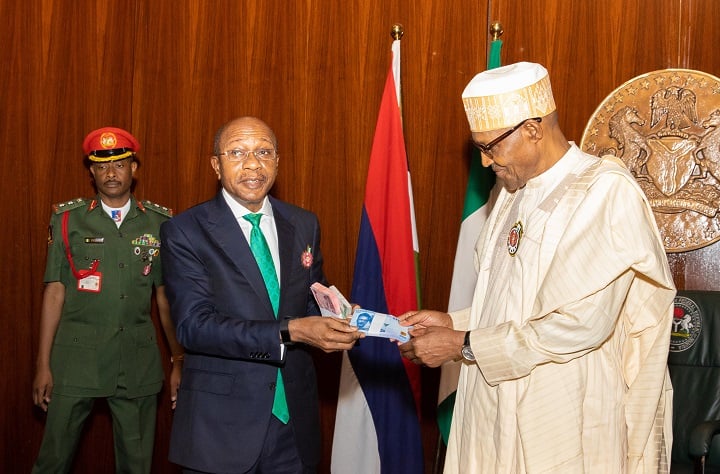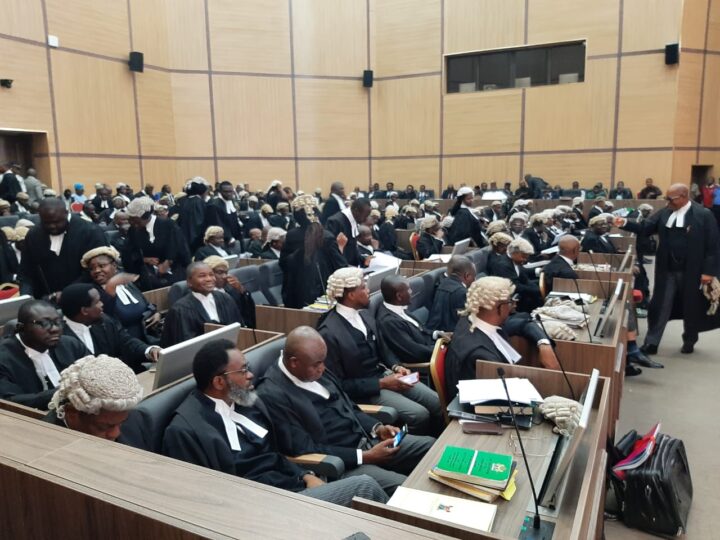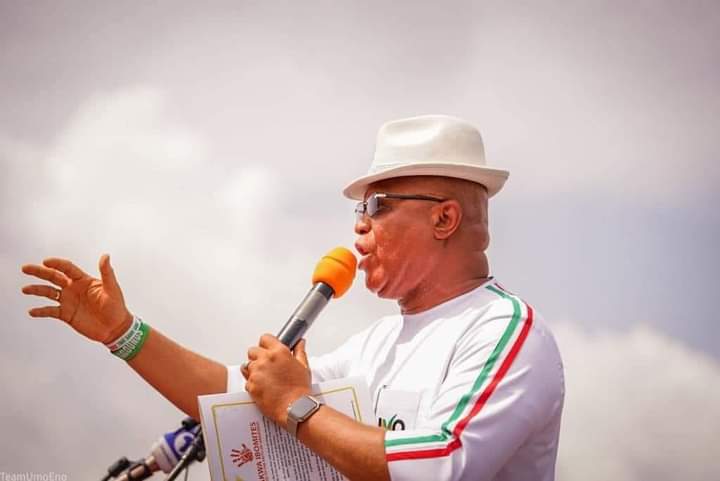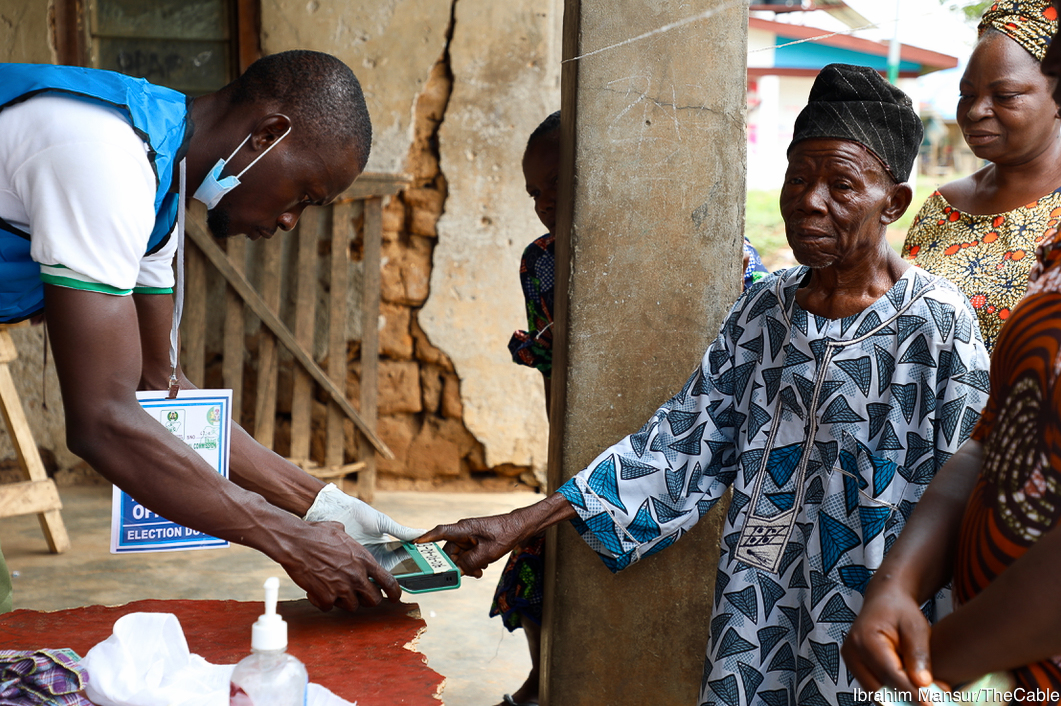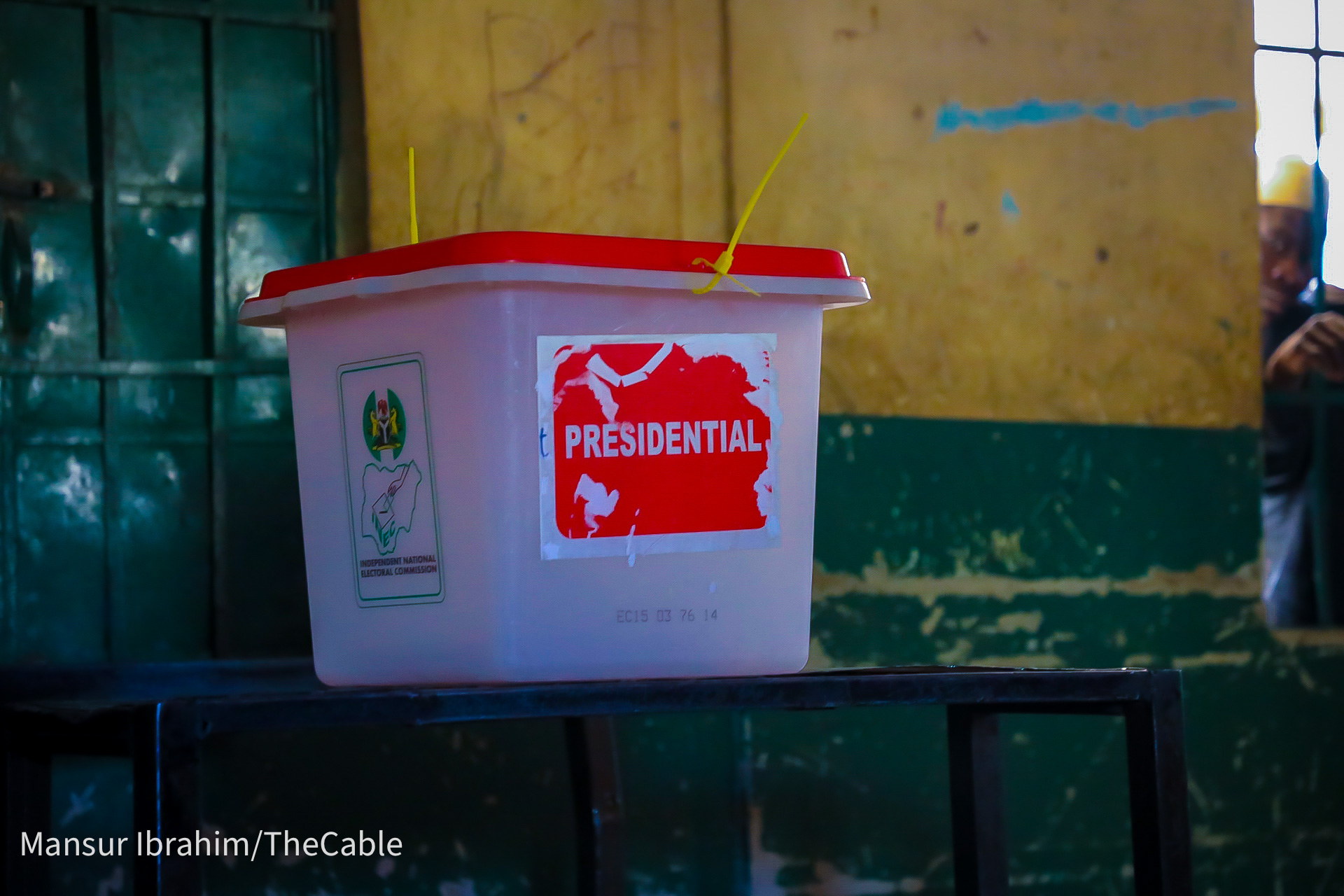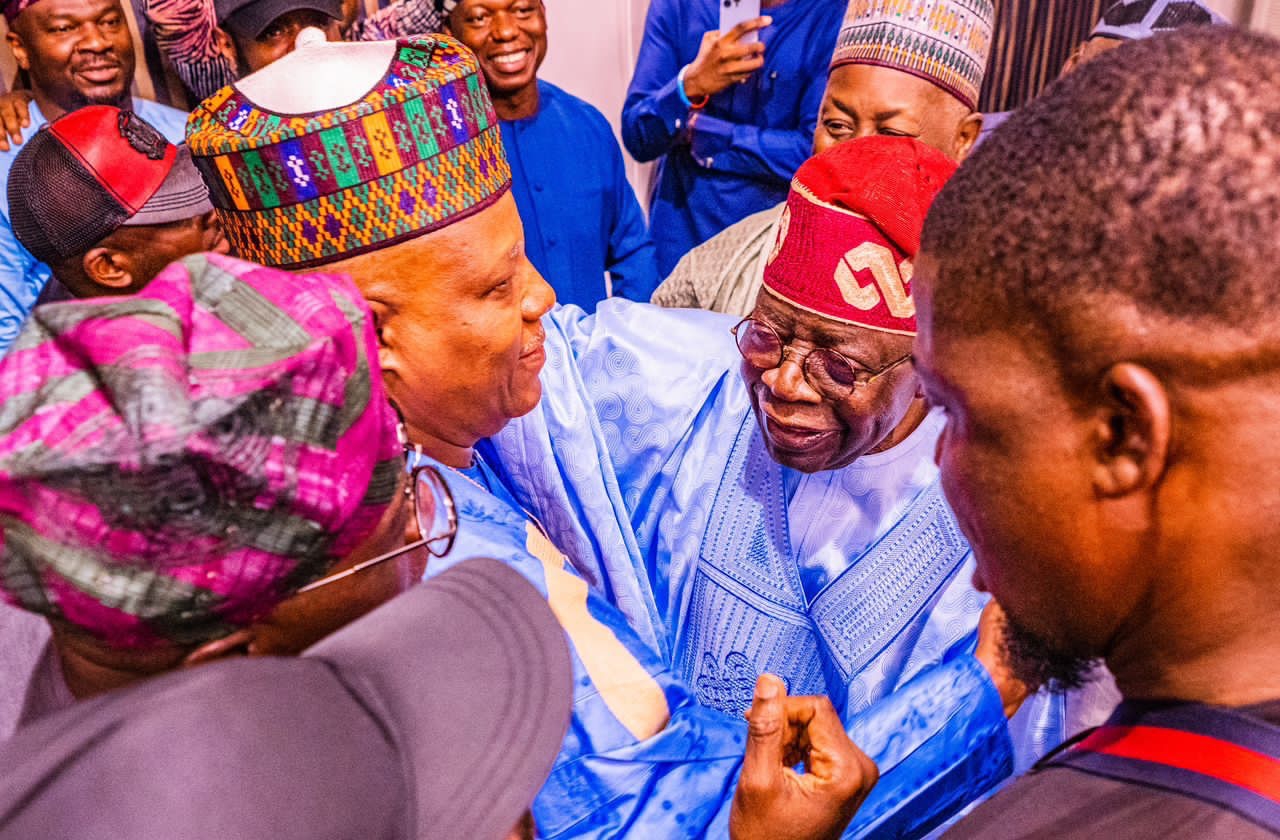PRESIDENT BUHARI UNVEILS NEW NAIRA NOTES 1A-C; L-R; CBN Governor, Mr Godwin Emefile and President Muhammadu Buhari, as President Unveil new Naira Notes and presides over FEC Meeting at the State House Abuja. PHOTO; SUNDAY AGHAEZE. NOV 23RD 2022
Following the implementation of the thoughtless Naira redesign policy and consequent “notes swap”, by the governor of the Central Bank of Nigeria (CBN), Godwin Emefiele, the life of an average Nigerian has taken a turn for the worse. No cash at hand to meet basic daily needs and cash at the bank is as good as being impecunious. The apex bank, under Emefiele, hoodwinked Nigerians into depositing the old banknotes (₦200, ₦500, and ₦1000) in their possession with the deposit money banks (DMBs), not later than January 31, 2023, with the false hope that the new notes would be made available such that Nigerians can access their funds any time they so wish.
The deadline was extended by 10 days. Every law-abiding citizen complied and rushed down to deposit the old notes, with the belief that whenever they need their hard-earned money, all it will require is to approach their banks and either make a withdrawal through the automated teller machines (ATM) cards or fill a withdrawal form and get the needed cash. But that happened to be the greatest miscalculation of the millennium. Notes swap would later turn to “notes grab” (apologies to Femi Fani-Kayode). The CBN, literally, confiscated people’s hard-earned money.
After mopping up about ₦3 trillion of the old notes from circulation, the CBN only made available, less than half a trillion naira – about ₦300 billion to be precise, which is a far cry from what is needed to lubricate the economy.
Dear readers, I won’t bore you with the purported reasons for the crass implementation of the policy because they (the reasons) are as annoying as the consequences on both micro and macroeconomics. Every right-thinking person is yet to wrap his head around the policy at this material time, motive, and the way it is being implemented, in a manner devoid of empathy for the poor masses.
The Nigerian Naira became as scarce as, if not scarcer than, the US Dollars due to the apex bank’s refusal to replace the withdrawn old notes. People now have to be charged as much as 40%, by POS operators for every withdrawal. That is where and when it is even available at all. What was happening? Nigerians demanded explanations. But what they got was all platitudes romanticising the efficacy of the policy in tackling corruption, kidnapping, inflation, and vote-buying among other reasons. We were also told that there is a need for us to embrace a dead-on-arrival “cashless policy”. Dead on arrival because the issue of infrastructure (internet penetration) needed to, seamlessly, transition to an all-inclusive cashless economy has never been addressed. I mean, nobody has bothered to carry out an audit of the level of preparedness of the financial sector in terms of the required infrastructure to drive the policy. When customers make an electronic transfer of funds, their accounts get debited immediately without the recipient’s account being credited. Even some are never reversed. Where it is reversed, the lucky customer must have gone through hell, standing in the queue for hours before gaining entry into the banking premises.
Advertisement
An uncle, whose work is service-based, recently told me that one of his clients transferred money to his account last week through a POS but the transaction was purportedly declined. Meanwhile, the client’s account was debited immediately without a reversal of the fund. But neither of them had seen the money up until the time he was narrating the incident to me. “They neither reversed the transaction nor credited my account,” he said. The client’s bank, according to my uncle, told him to wait for seven working days. I also had a personal experience, when I bought fuel about a fortnight ago from a fueling station, and had to pay with my debit card. The error message I got was “transaction declined”. So, I had to bring out another debit card belonging to a different bank, before payment could be effected. Similar to what an average bank account owner in Nigeria is made to pass through every now and then, I got a debit alert for the initial transaction that was said to have been declined. When I visited the fueling station, the following morning on my way to work, to lodge a complaint, I was advised to visit my bank to lodge a complaint. I visited the bank’s website, and took their purported customer care email address, through which lodged my complaint. But, 72 hours later, I got no response as a form of acknowledgement to my email, so, I decided to, amid my very tight schedule, visit the bank’s branch, filled a complaint form and submitted the same manually. That was after I had been in the queue on the main road in front of their gate for about three-and-a-half hours under the scorching heat of the sun before I could gain entrance into the banking hall. The reversal was not done until about two days ago. Now, come to think of it, assuming that was all the money I had left that means, to survive, I would either have to go begging or starve with my family. Just imagine, if I wasn’t strong, or enlightened, enough to visit the bank and lodge a complaint, that was how my money would have gone without any hope of a reversal because none of the banks in Nigeria has a functional in-built mechanism that automatically initiates a reversal process unless you go for it manually.
The ill-conceived and ill-timed policy has virtually shut down the informal sector, which is the midriff of the country’s economy. All roadside vulcanisers, barbers, mechanics, condiments sellers, and other small-scale businesses have seen their revenue dry up, not for lack of patronage, but for lack of a medium of exchange. These are, largely, an unbanked group of citizens who live on their daily incomes, yet there is no means of getting paid for services rendered, except by cash, which is unavailable.
The most worrisome part of the whole thing is that the Supreme Court came to the rescue of the hapless masses on March 3, 2023, by ruling in a landmark case instituted by a consortium of state governors (Kaduna, Kogi, Zamfara, and others), that the old notes should continue to co-circulate with the new ones until December 31 this year. That landmark judgment was seen by the suffering citizens as heaven-sent. But the Muhammadu Buhari-led federal government has this unparalleled notoriety for disobeying court orders. Even though it is unheard of, in a democratic setting, it has become emblematic of the Buhari administration to selectively obey court judgments, choosing only the ones that favour it. That is a recipe for anarchy in case the attorney-general and the minister for justice, Abubakar Malami, fail to educate his boss on the consequence of such a despicable act of executive recklessness. It has refused to obey that judgment until this Monday when the Senior Special Assistant to the president on Media and Publicity, Mallam Garba Shehu, tongue-in-cheek, on Monday issued a press statement, laden with contradictions; unwillingness to take responsibility for actions and inactions; buck-passing; a hypocritical tendency for wanting to take credit for what the presidency believes to be the gains of the unfortunate policy.
Advertisement
In the said press statement, he virtually threw the CBN governor under the bus, saying he wonders what sort of directive he is waiting for before obeying a court judgment – the supreme court for that matter! Meanwhile, neither the CBN nor its governor was a party to the case. Rather, it was the president who appointed the governor and gives him approval for whatever policy the former wants to implement that was sued. So, it behoves the president to, without wasting time, tell Emefiele that this is what the court says and this is what he should do in compliance with the judgment. But here we are, with an administration that has elevated buck-passing to the status of a national sport.
The CBN, too, dodged a bullet by issuing its own statement of compliance with the court judgment, that the old version of the three redesigned notes remain legal tender until December 31, suggesting that banks and traders in the country can accept it as a means of exchange until December 31 this year.
The Buhari administration’s record of disobedience to court orders is legendary. From Maazi Nnamdi Kanu, Sheik Ibrahim El-Zakzaky, Omoyele Sowore, Sambo Dasuki, and several others too numerous to mention, to the latest supreme court judgment on the redesigned notes, the Buhari administration has not covered itself in glory. In the judgment in which the Buhari-led federal government is the defendant, the president was ordered to compel his appointee (the CBN governor) who receives instruction from him on policies of this nature to allow the old ₦200, ₦500, and ₦1000 notes to co-circulate with the new ones as legal tender until the end of this year. From my observation, the supreme court ruling was never going to be obeyed until pressures started mounting from left right and centre. The Nigerian Labour Congress (NLC) threatened to embark on a strike and the Nigerian Bar Association (NBA) also demanded that the court judgment be obeyed with immediate effect. That was when the president beat a tactical retreat which brought about Shehu’s press release on Monday. But ultimately, the rule of the law won. Democracy won. Common-sense won. Reason won. “Still, na God win”.
We were told that the desperate implementation of the policy by the first and only incumbent CBN governor in history to attempt to run for a political office, is allegedly born out of the need to settle political scores with a certain presidential candidate (an allegation he’d denied). I don’t know how true that is. But if I may ask, why must the vast majority of Nigerians continue to suffer dysentery from the excessive consumption of sugar by a very tiny minority – political elites? Now, it even looks like the court judgment is irrelevant in reversing that gear of bellicosity. It is unfortunate, we do not have a national assembly with the testicular fortitude to carry out “checks and balances”; otherwise, this is an impeachable offence that must not be allowed to slide. It does not only threaten to truncate our hard-earned democracy, but also constitutes an existential threat to the corporate existence of Nigerian nationhood.
Advertisement
I wonder where the NBA and the NLC have been, or what they have been doing all this while, as the currency redesign policy kept dehumanising their members and other senior citizens of this great country! Since the federal government now appears bigger than the supreme court, I had expected the NBA to swing into action much earlier than it did to protect the independence of the judiciary by demanding that the president obeys court order by instructing the CBN governor to stop punishing Nigerians with the vendetta-coloured policy that has brought the economic lives of Nigerians to a standstill.
The NLC, on its part, was busy killing an ant with a sledgehammer in Imo state, fighting some ego-massaging war over an allegation that the state government was deploying security apparatuses to disrupt its state congress election with a view to influencing its outcome. The Joe Ajeiro-led congress is, therefore, missing in action at the national level, where its voice needs to be heard more than anywhere else. Nevertheless, their better-late-than-never intervention has, kind of, forced the federal government to beat a tactical retreat, forcing the hands of the CBN to obey the hitherto disobeyed supreme court’s judgment. This is, no doubt, a victory for Nigerians and, by extension, our democracy.
Abubakar writes from Ilorin. He can be reached via 08051388285 or [email protected]
Advertisement
Views expressed by contributors are strictly personal and not of TheCable.
Add a comment

